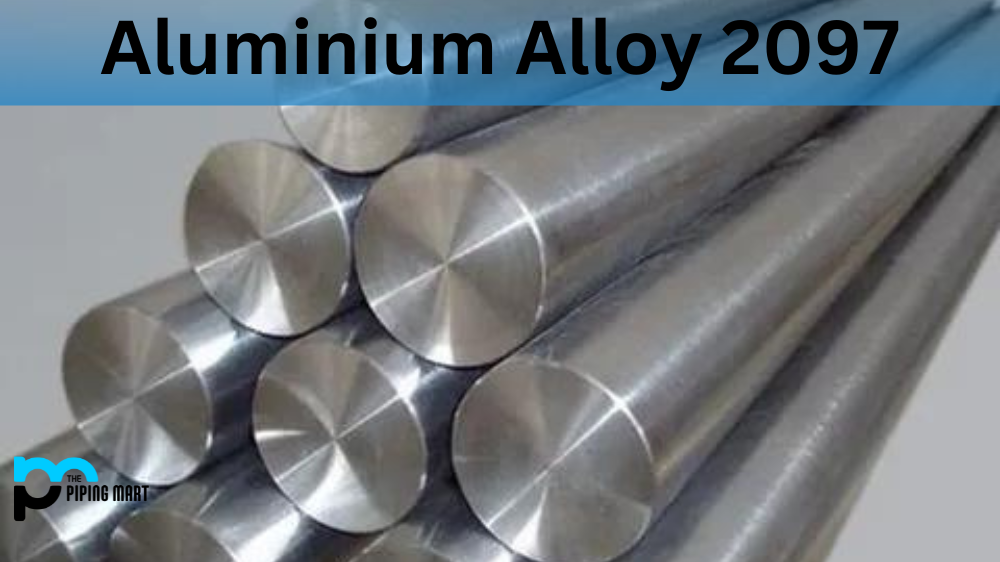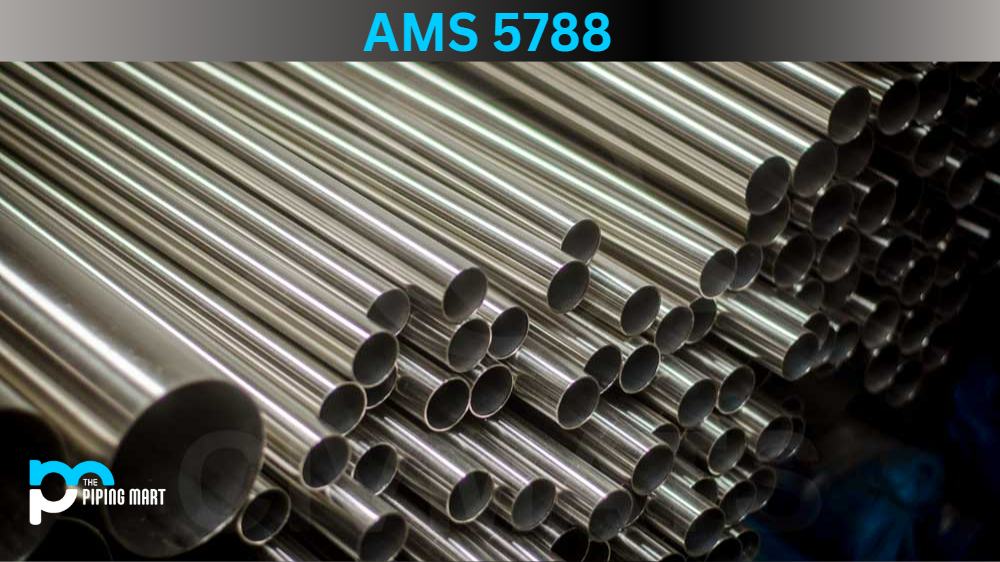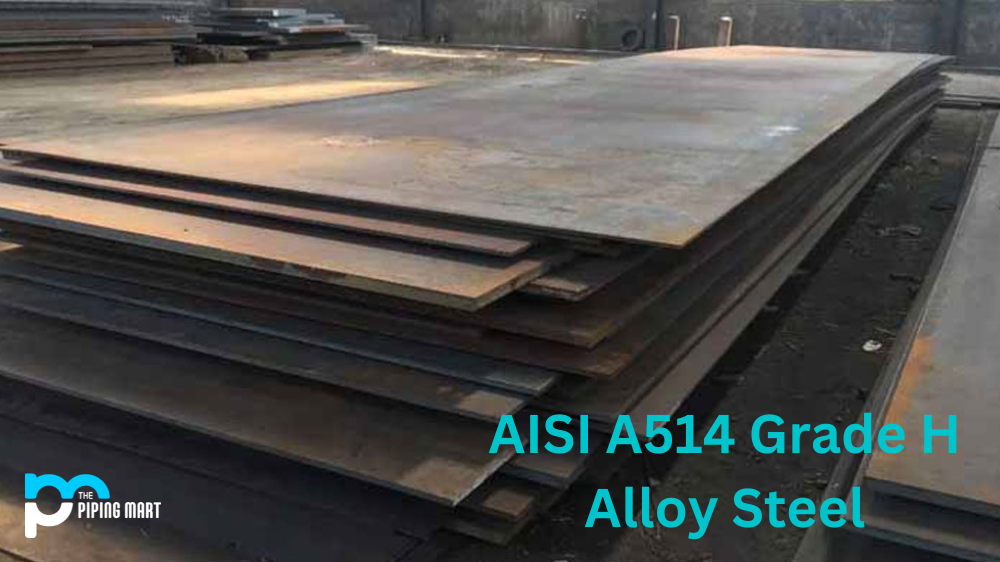Aluminium alloy 2097 is a highly versatile material used for various purposes due to its exceptional physical, chemical, and mechanical properties. In this blog post, we’ll be taking an in-depth look at alloy 2097 and exploring its many uses and benefits.
Composition
AL 2097 is composed of approximately 97% aluminium, with the other 3% being made up of copper (Cu), manganese (Mn), magnesium (Mg), silicon (Si), chromium (Cr), titanium (Ti) and nickel (Ni). This unique combination of elements gives it excellent corrosion resistance and a high strength-to-weight ratio, making it ideal for a range of applications. It also has good weldability and machinability, making it easy to work with.
| Element | Amount |
|---|---|
| Copper (Cu) | 2.50-3.10% |
| Lithium (Li) | 1.20-1.80% |
| Manganese (Mn) | 0.10-0.60% |
| Magnesium (Mg) | 0.35% |
| Zinc (Zn) | 0.35% |
| Titanium (Ti) | 0.15% |
| Silicon (Si) | 0.12% |
| Aluminum (Al) | rem% |
Chemical properties
Grade A92097 is an alloy used in various structures and components, such as automotive frames and aircraft components. What makes Aluminium 2097 unique is its chemical properties. It has a high strength-to-weight ratio which makes it ideal for applications needing lightweight but strong materials that can support hefty loads. Additionally, this alloy has excellent corrosion resistance, which adds to its longevity even in the most demanding environmental conditions. Despite being able to withstand harsh conditions, it does not sacrifice its formability and works well with various fabrication techniques. As a result, grade 2097 lends itself to use in a multitude of industrial settings where reliable performance is necessary.
Mechanical properties
Alloy 2097 is one of the lightest and strongest aluminium alloys, making it a popular choice for many applications. It has an excellent combination of mechanical properties, including fatigue strength, fracture toughness, and tensile strength. Because of these properties, Aluminium 2097 is an ideal material for parts exposed to high-stress levels, such as components in the aerospace industry. Moreover, its superior corrosion resistance makes it perfect for applications used in salty or acidic environments. All in all, Aluminium 2097 is an excellent choice for various applications due to its outstanding mechanical properties and corrosion resistance.
Physical properties
2097 Aluminium is a strong and durable aluminium alloy used in many manufacturing applications due to its physical properties. This alloy can withstand high temperatures, has good corrosion resistance, and is weldable. It also has very low levels of electrical conductivity, making it suitable for use in various electro-mechanical applications. Furthermore, it is lightweight and has a high strength-to-weight ratio, perfect for services in cars, airplanes or other weight-bearing structures. Due to its versatile physical properties, Aluminium 2097 is highly sought after as a component in many industries, including aerospace engineering, automotive engineering and construction.
Uses
In modern society, aluminium 2097 has become one of the most widely used materials for various industrial and commercial applications. Not only does it remain lightweight, but its durability and resistance to corrosion make it an incredibly versatile material. From aerospace engineering and construction to medical implants for repairing injuries, aluminium 2097 is a key element in innumerable technological innovations. Its ability to retain its shape when exposed to high temperatures means it is also ideal for vehicle parts, kitchenware, and cookware. Such versatility of cement aluminium 2097 is one of the go-to elements for manufacturers worldwide.
Corrosion Resistance
The addition of copper makes aluminium alloy 2097 highly resistant to corrosion. This means that parts made from this material can be used in outdoor environments without fear of rusting or corroding over time. Its low density also helps reduce the risk of corrosion as it makes the parts less likely to accumulate moisture or build up deposits.
Heat Resistance
Aluminium alloy 2097 has very good heat resistance, which allows it to withstand temperatures up to 200°C before experiencing any permanent deformation or loss of strength. This makes it suitable for use in high-temperature applications such as automotive components, aircraft components, heat exchangers and more.
Heat Treatment
To further increase its strength properties, aluminium alloy 2097 can be subjected to various heat treatments such as annealing or solution heat treatment. These processes allow the metal’s crystalline structure to become more organized, which increases its hardness and tensile strength while maintaining its ductility.
Machining
Aluminium alloy 2097 can be machined easily using conventional tools such as drills and taps, but extra caution should always be taken when machining this material due to its soft nature. It is also important to use cutting fluids when machining this material to minimize tool wear and improve surface finish quality.
Welding
Aluminium alloy 2097 can easily be welded using gas tungsten arc welding (GTAW) or shielded metal arc welding (SMAW) techniques, but extra care must be taken when selecting the right filler rod or wire for the job due to its tendency to crack during welding if not done properly. AWS ER4043 should be used for best results when welding this material together since it has been specifically designed for welding aluminium alloys like this one.
Conclusion
As you can see, aluminium alloy 2097 is an extremely versatile material with many beneficial properties which make it suitable for a wide range of applications, including automotive components, aircraft components, heat exchangers etc. Thanks to its excellent corrosion resistance and good heat resistance properties coupled with ease of machinability and weldability, it’s no wonder why so many engineers rely on aluminium alloy 2097 for their projects!

Abhishek is a seasoned blogger and industry expert, sharing his insights and knowledge on various topics. With his research, Abhishek offers valuable insights and tips for professionals and enthusiasts. Follow him for expert advice on the latest trends and developments in the metal industry.




